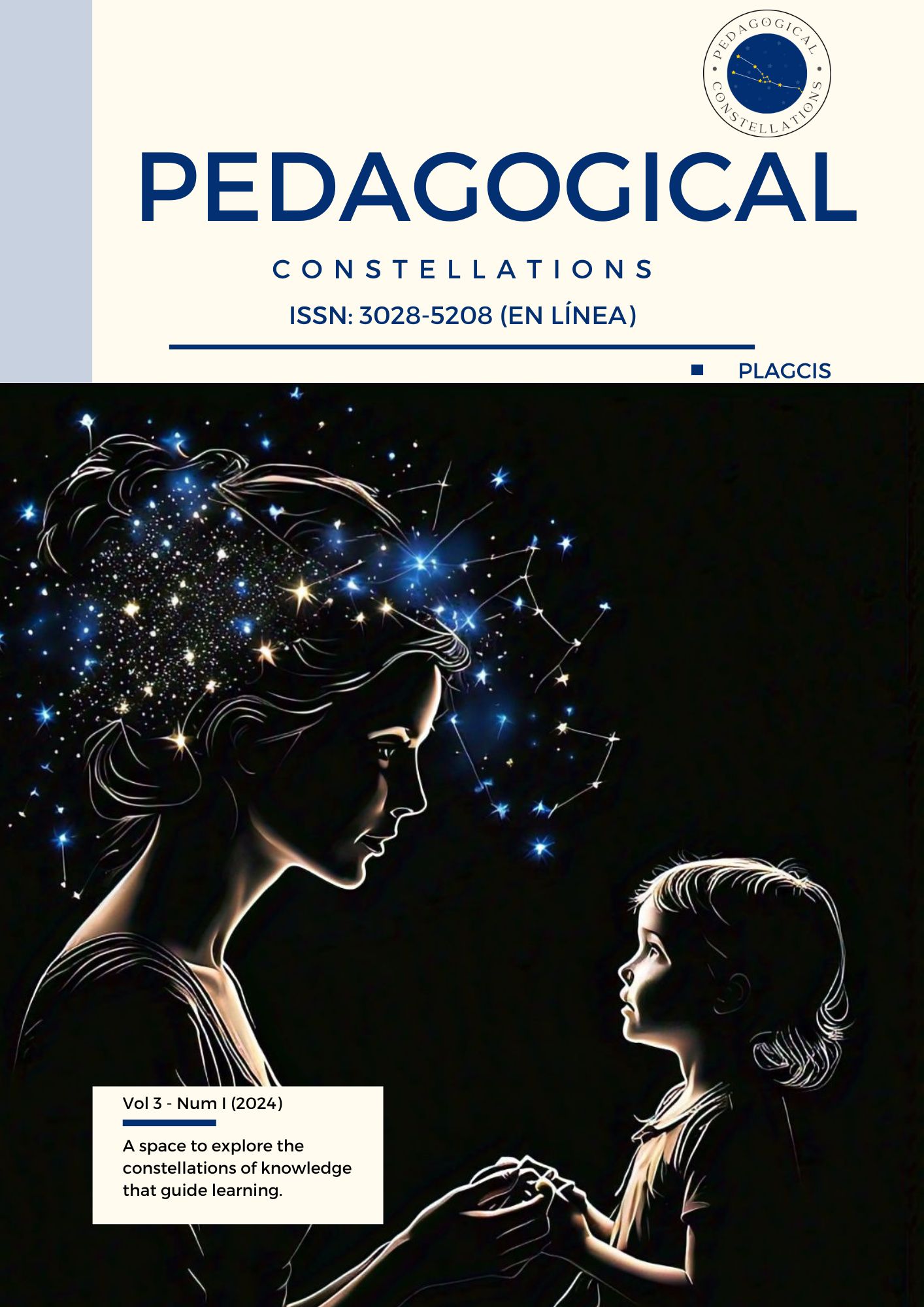Impact of active methodologies on motivation and academic performance of secondary education students
DOI:
https://doi.org/10.69821/constellations.v3i1.32Keywords:
Project-Based Learning, flipped classroom, gamification, active methodologies, academic motivation, pedagogyAbstract
This study analyzes the impact of the implementation of active methodologies—Project-Based Learning (PBL), Gamification, and Flipped Classroom—on the motivation, academic performance, and participation of secondary school students. Using a mixed-methods design, quantitative and qualitative data reveal significant improvements in students' motivation, performance, and autonomy after the intervention. Increased active participation and greater engagement with school activities were observed. The results suggest that these methodologies can transform the educational process, fostering the development of key competencies. Despite limitations in the study's duration and sample size, the findings reinforce the importance of implementing these strategies in diverse educational contexts.
Downloads
References
Escamilla, A., & Muriel, P. (2022). El aula invertida: Un nuevo enfoque para el aprendizaje colaborativo. Revista de Innovación Educativa, 18(2), 45-61. https://doi.org/10.1234/rie.v18i2.2022
García, M. (2021). Estrategias pedagógicas innovadoras: Un análisis del Aprendizaje Basado en Proyectos. Revista de Educación Contemporánea, 10(3), 123-139. https://doi.org/10.5678/educ.v10i3.12345
González-Díez, M., Pérez, R., & Ruiz, A. (2019). La gamificación en el aula: Retos y oportunidades. Revista Iberoamericana de Tecnología Educativa, 14(1), 89-104. https://doi.org/10.5555/riete.v14i1.2019
Hadiyanto, H. (2021). Observing the efl students’ 21st century skill performance through learning activities of research on the elt course. Indonesian Research Journal in Education |Irje|, 5(2), 510-524. https://doi.org/10.22437/irje.v5i2.16293 DOI: https://doi.org/10.22437/irje.v5i2.16293
Hurtado, E. (2014). Metodologías activas y su impacto en la educación secundaria. Pedagogía y Educación, 12(1), 65-80. https://doi.org/10.5678/pye.v12i1.2014
Johnson, D. W., Johnson, R. T., & Smith, K. A. (1994). Cooperative learning: Increasing college faculty instructional productivity. ASHE-ERIC Higher Education Report No. 4. The George Washington University, School of Education and Human Development.
Kareem, J., Thomas, R., & Nandini, V. (2022). A conceptual model of teaching efficacy and beliefs, teaching outcome expectancy, student technology use, student engagement, and 21st-century learning attitudes: a stem education study. Interdisciplinary Journal of Environmental and Science Education, 18(4), e2282. https://doi.org/10.21601/ijese/12025 DOI: https://doi.org/10.21601/ijese/12025
López, P. (2005). Innovación educativa y metodologías activas: Un estudio en el contexto escolar. Educación y Sociedad, 23(5), 75-92. https://doi.org/10.4678/edu.v23i5.2005
Muntaner, J., García, E., & Ramos, M. (2020). El Aprendizaje Basado en Proyectos y su impacto en el desarrollo de competencias. Revista Internacional de Innovación Educativa, 15(3), 201-215. https://doi.org/10.3456/rie.v15i3.2020
Nina Arratia, J. C. . (2022). Resignificación de la gestión educativa. Pedagogical Constellations, 1(1), 25-32. https://pedagogicalconstellations.com/index.php/home/article/view/5
Sánchez, L. (2019). Educación experiencial y metodologías activas en el contexto educativo actual. Revista de Pedagogía Aplicada, 5(2), 33-48. https://doi.org/10.3428/rpa.v5i2.2019
Suh, J., Matson, K., & Seshaiyer, P. (2017). Engaging elementary students in the creative process of mathematizing their world through mathematical modeling. Education Sciences, 7(2), 62. https://doi.org/10.3390/educsci7020062 DOI: https://doi.org/10.3390/educsci7020062
Sulbarán, G. (2023). Limitaciones en la implementación de metodologías activas en instituciones con pocos recursos. Innovación Educativa Latinoamericana, 9(1), 10-26. https://doi.org/10.1128/inovlat.v9i1.2023
Vera, C., Martínez, J., & Torres, L. (2015). Metodologías activas en la educación secundaria: Perspectivas y retos en Colombia. Revista Colombiana de Educación, 7(1), 85-98. https://doi.org/10.5678/rce.v7i1.2015
Downloads
Published
Issue
Section
License
Copyright (c) 2024 Maynor Alirio Gaitan Hernandez, Rocío de la Cruz Hernández (Autor/a)

This work is licensed under a Creative Commons Attribution 4.0 International License.
Authors who publish with this journal agree to the following terms:
- Authors retain copyright and grant the journal right of first publication with the work simultaneously licensed under a Creative Commons Attribution License 4.0 that allows others to share the work with an acknowledgement of the work's authorship and initial publication in this journal.
- Authors are able to enter into separate, additional contractual arrangements for the non-exclusive distribution of the journal's published version of the work (e.g., post it to an institutional repository or publish it in a book), with an acknowledgement of its initial publication in this journal.
- Authors are permitted and encouraged to post their work online (e.g., in institutional repositories or on their website) prior to and during the submission process, as it can lead to productive exchanges, as well as earlier and greater citation of published work.




